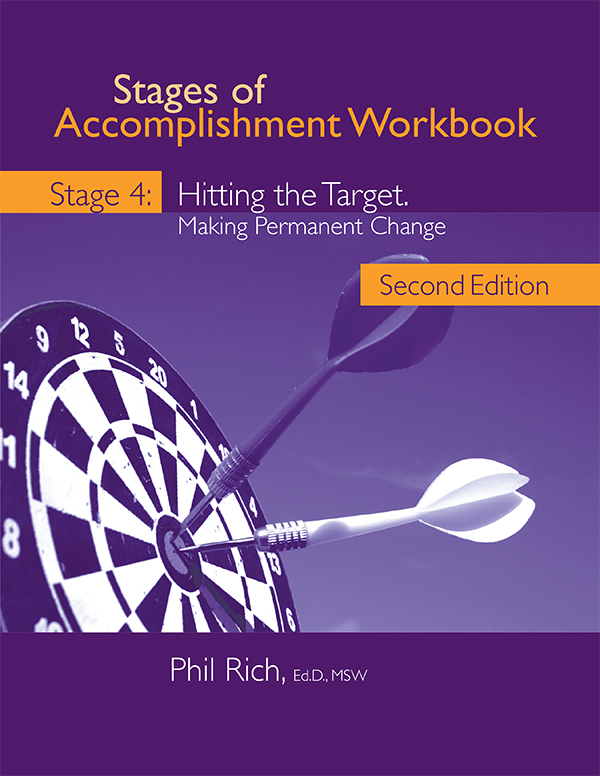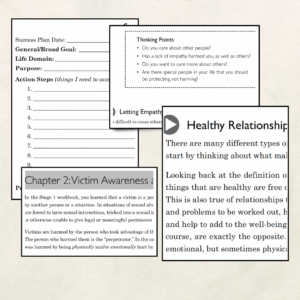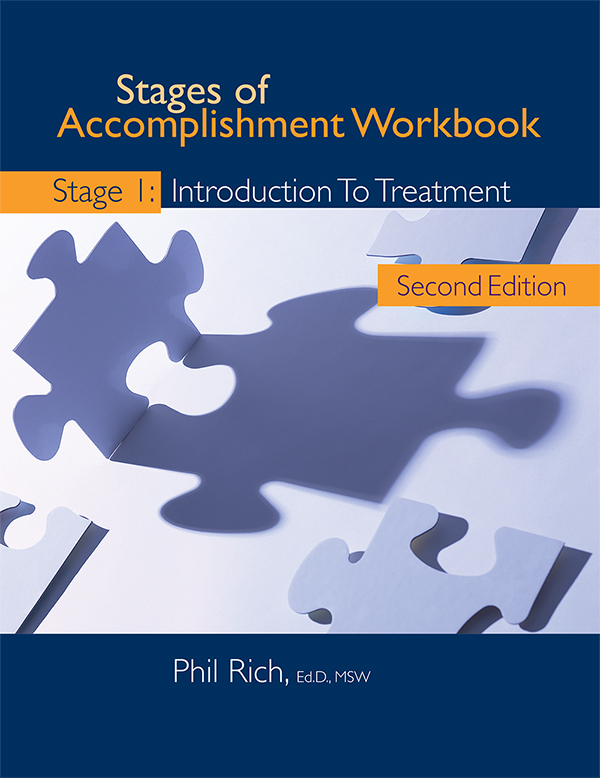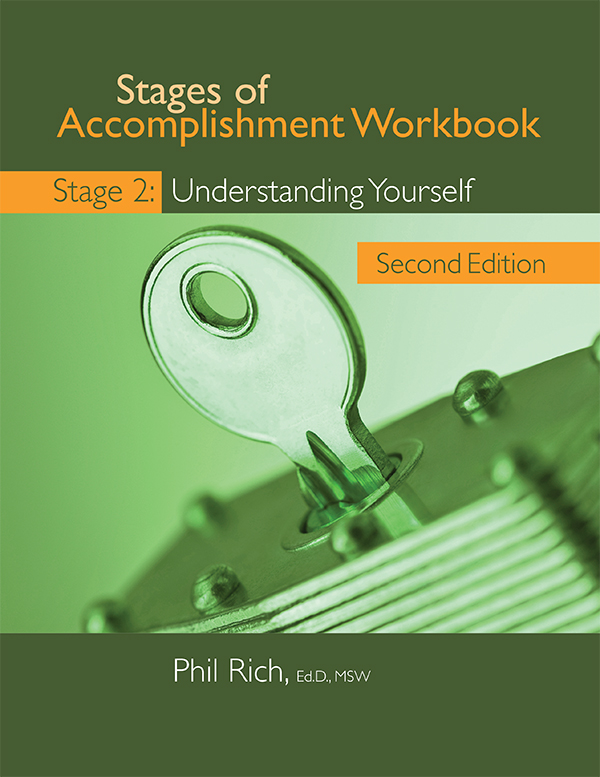Home / Shop / For Youthful Clients / Workbooks for Youthful Clients
Stages of Accomplishment: Stage 4 - Hitting the Target. Making Permanent Change

- Description
- Specifications
Stage 4: Hitting the Target. Making Permanent Change
With an aim to foster rehabilitation and pave the way towards a brighter future, the Stages of Accomplishment workbooks help clinicians guide young people with problematic sexual behaviors through a journey of self-discovery. The workbooks are designed to be used as one element of a comprehensive treatment program, although each can be used independently. Clinicians can use the workbooks to extend treatment beyond the therapy session, provide a foundation for discussion and exploration, and engage clients in self-directed learning.
______________________________________________________________________________
This is the final workbook in the Stages of Accomplishment series. Once you and your client have completed Stages 1-3 in this workbook series, your client will be well-prepared to tackle the challenge presented in Stage 4: Implementing the changes they have committed to making to their lives.
Stage 4 continues the key themes explored in workbooks 1-3:
- Taking responsibility for your actions
- Understanding how thoughts, feelings, and behavior are interconnected and how to recognize - and change - distorted thinking
- Being honest with oneself and others
- Recognizing – and interrupting – dysfunctional behavioral cycles
- Understanding the nature of healthy and unhealthy relationships
Now that the foundation has been laid, the Stage 4 workbook helps clients put plans into action and transform goals and aspirations into a Success Plan. The goal of the Plan is to identify what strengths the client can draw from to make re-offending less likely. However, the goal of this stage is not only to prevent the recurrence of problem behaviors (safe behavior plans) but also to help the young person achieve success in life.
Strategies to Restore and Rebuild
 Once clients have learned to truly take responsibility for their actions, there are many ways they can now begin to rebuild relationships that have been damaged. This workbook is filled with real-world vignettes and questions you can discuss with them during sessions that will help them explore what they can do to rebuild their lives. These include:
Once clients have learned to truly take responsibility for their actions, there are many ways they can now begin to rebuild relationships that have been damaged. This workbook is filled with real-world vignettes and questions you can discuss with them during sessions that will help them explore what they can do to rebuild their lives. These include:
- Making Amends: In later stages of treatment, clients may be ready to better understand not only who is the direct victim of their actions but also who are the indirect victims (e.g., family and community members). This workbook helps clients address what they can do to provide some form of restitution to the victim(s) of sexually abusive behavior.
- Cultivating Empathy: Relationships can be mended—and healthier ones built—when clients learn to be active listeners, use "I" statements, and understand nonverbal communication.
- Creating Healthy Relationships: The client’s future will undoubtedly include relationships, some platonic, some romantic, and some intimate. This workbook returns to key understandings such as consent, respect, honesty, and trust.
- Contributing to the Community: Feelings of self-worth are bolstered by involvement with positive areas of the client’s community and through actions that improve their community. This workbook helps clients explore how they can “give back” and become “community builders” instead of “community destroyers.”
An Indispensable Guide for You and Your Clients
This final workbook in the series will be invaluable in your work with clients involved in sexually inappropriate or abusive behavior. It provides the tools you can use to help guide often difficult discussions with your clients, discussions that can lead to life-changing insights.
ISBN: 978 -1-940234-27-4
164 pages, paperback
$17
Order# WP216



